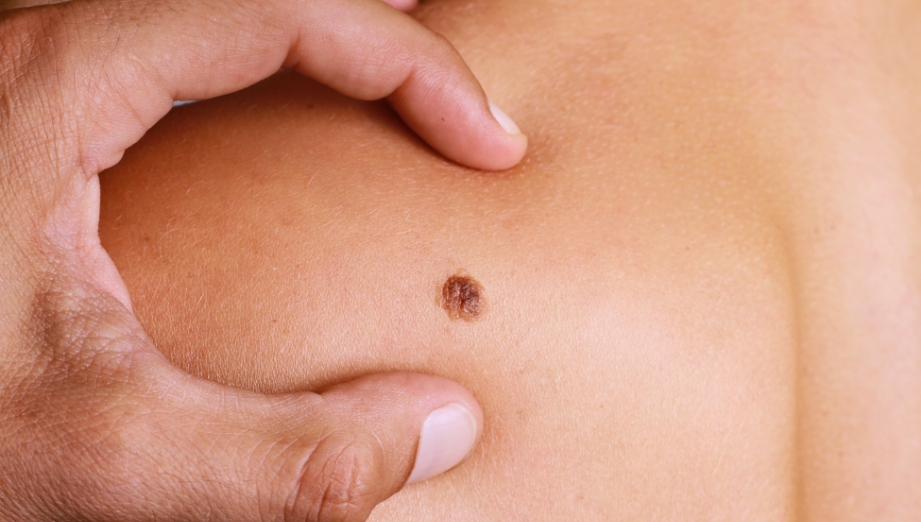Australia is known for its warm summer days at the beach, playing cricket or having a barbecue with friends. Unfortunately, due to Australia’s sunny days, it also ranks as a country with one of the highest rates of skin cancer. Exposure to the sun, along with other health and lifestyle factors, can increase the body’s chance of developing skin cancer. We recommend our patients regularly undergo skin checks to recognise any skin changes early and to support the early detection of skin cancer.
Here at Shellharbour Skin, we perform regular skin checks for our patients and monitor their skin so we are aware of any unwanted changes.
Skin checks are an important tool for monitoring skin health. Early detection of abnormal cells means that our team can discuss appropriate management of the area and support early intervention.
Dr Gordon and our Illawarra team see many patients daily who are looking to check abnormalities or receive a full-body skin check. Whatever the case, our friendly team is happy to help, check your skin thoroughly, and provide you with information about your skin’s health.
What is skin cancer, and what causes it?
Skin cancer is an abnormal growth of skin cells that often develops when exposed to sun damage. The ultraviolet radiation of the sun can damage the skin cells and can encourage cancerous cells to develop. Skin cancer is defined by the type of skin cell it develops in, with three distinct types of cancer existing.
Melanomas are the most serious type of skin cancer, as once they develop, they can spread throughout the body to the organs. Melanomas develop in the melanocyte cells of the skin. Basal cell carcinoma is another common type of cancer that develops in the basal cells of the epidermis. Squamous cell carcinoma is the third type of commonly developed cancer and is an abnormal growth of squamous cells in the epidermis. Both basal cell carcinoma and squamous cell carcinoma are less likely to spread through the body as they are non-melanoma cancers.
Unfortunately, Australia’s climate makes it a hub for skin cancer development. Sun damage and genetics increase the skin’s ability to develop skin cancer. Patients are at more risk of developing skin cancer if they:
- Have many freckles or moles
- Use sunbeds
- Have a family history of skin cancer
- Burn easily
- Have fair skin
- Do not tan
- Work in the sun
- Have previously been sunburnt

Why are regular skin checks important?
Regular skin checks are an important part of supporting your skin health and ensuring we monitor skin abnormalities. Early detection is important. According to the Cancer Council Australia, most skin cancers can be successfully treated if found early.
Skin cancer checks are a key method for detecting potentially cancerous cells and warning signs early. An important way to support your skin is to regularly check your skin at home and go to a skin cancer clinic to have regular skin checks. This means regular skin checks help you and our team of physicians understand what is normal for your skin and have a better understanding of when changes occur.
Here at Shellharbour Skin, we offer skin cancer checks to examine your skin, address any concerns, and investigate any abnormal cells.
Each patient will need a different number of skin checks in their lifetime, and the regularity of the checks will depend on their unique case. In a consultation at Shellharbour Skin, Dr Gordon will determine the frequency and number of skin checks you will need based on several factors. The factors that increase the number and frequency of skin checks include:
- Your skin type
- Your age
- Previously developing skin cancer (depending on the severity and number of cases)
- Your regular exposure to the sun while working or recreationally
- Active sun damage
- Frequency of sunscreen use
- Your family history
Most patients who are low-risk will be recommended to have a skin check once a year. For high-risk cases, it is recommended to have a skin check once every three months.
Checking your own skin
Whilst professional skin clinic checks are a recommended way to monitor the skin for abnormalities, home skin checks are a great way to become familiar with your body and what is normal for your skin. By checking your own skin, you will be able to detect areas of concern earlier and keep a record of symptoms to report back to our team.
We recommend using the ABCDE guide to detect if any abnormalities occur:
A- Spots with a lack of asymmetry
B- Spots with an irregular, spreading border
C- Spots made up of several colours
D- Spots that are changing in diameter
E- Spots that are evolving or growing
To check your own skin, ensure that you have adequate lighting and remove your clothing so you can check your full body. We recommend using a mirror in your check to ensure you do not miss important areas such as your back and behind your legs. Some patients find it easier to have a partner or family member complete the skin check and examine areas such as the scalp.
If you have any questions or concerns about how to perform a self-examination, feel free to discuss this with Dr Gordon in your clinical skin check appointment.

Skin checks at our Illawarra clinic
Here at Shellharbour Skin, we offer skin checks to monitor your skin health and to keep a record of any changes in your skin cells. Prior to your skin check, you should remove makeup or fake tan to ensure your skin is clear for our team to inspect. Patients should regularly moisturise in the lead-up to their skin check, as it is harder to examine dry skin. A skin check will take around 10 to 30 minutes to complete depending on your areas of concern or the number of spots.
The skin check appointment will begin with Dr Gordon evaluating your medical history, your family history and your current medication intake to determine your level of skin cancer risk. If you have spots of concern, we recommend an open discussion with Dr Gordon during your appointment so he can make a special note of examining those areas. The examination will begin with Dr Gordon looking at the skin through a magnifying device called a dermatoscope. Examination areas include:
- Face, scalp, and behind the ears
- Chest
- Back
- Arms
- Legs
- The feet, including between the toes and soles of the feet
If we find any cells that pose a risk, or a high level of concern, our team will discuss the options with you, which may include removing the spot in the same appointment or scheduling a follow-up appointment to remove the lesion. Our team may perform a biopsy by removing a sample from the lesion. The biopsy helps determine if the sample is cancerous. Dr Gordon will evaluate if further action is needed to manage skin abnormalities.
Steps to lessen the risk of skin cancer
Whilst you are unable to fully prevent skin cancer, there are ways to reduce your risk. We recommend patients wear protective, covered clothing such as long-sleeved tops, hats, and sunglasses when exposed to the sun. We also recommend wearing tightly woven fabric for better UV protection and wearing hats that have wider coverage, such as covering the neck and ears. Reapplying sunscreen regularly and using water-resistant, SPF50+ sunscreen will add a layer of protection from UV rays.
When available, always seek shade instead of directly exposing yourself to the sun. Sun protection does not just apply to summer days. Sun protection should be practised all year round as the sun can still emit UV rays on colder days and through your car or house windows. If you follow these steps, you will have a lessened risk of developing skin cancer and can enjoy summer safely.
Contact Shellharbour today
Shellharbour Skin is extremely lucky to have experienced general practitioner Dr Barney Gordon at the helm of our skin cancer and aesthetic medicine clinic. An accredited skin cancer doctor, Dr Gordon, is highly experienced in the field of skin cancer and will ensure you receive dedicated care from our team. Make Shellharbour Skin your first point of contact to address any skin cancer concerns, regular skin checks, and skin cancer surgery.
Reach out to our friendly team today to book your next skin check at Shellharbour Skin with Dr Gordon.
If you have a question, get in touch and one of our staff will be in touch shortly.
- Consultations for Skin Tag Removal in Shellharbour
- Alma Hybrid CO2 Laser – Expert Insights from a Dermal Clinician
- Diet and Acne: An Expert Guide on Food Swaps and Skin Appearance
- How Do I Effectively Treat Hyperpigmentation? Expert Advice from Shellharbour Skin
- How Can I Keep My Skin Glowing During Menopause? Expert Tips for Radiant, Healthy Skin





